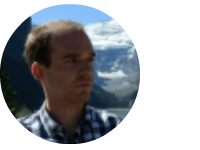
We are all familiar with the popular stereotype of the absent-minded, navel-gazing professor buried under books or experimenting in a lab. Despite the prevalence of this image, academic research is no longer a lonely enterprise and hasn't been for quite some time. Look no further for evidence than last week's announcement about the $75-million federal investment in future energy research at the U of A. Even in the social sciences and humanities, the big dollars are in team- and partnership-based research projects that entail multi-disciplinary collaboration between postsecondary institutions and the public, private and/or not-for-profit sectors. For example, SSHRC Partnership Grants can be valued up to $2.5 million dollars. It's only natural that addressing complex long-term societal challenges and opportunities effectively require great minds working together.
Yet public perception is not all that surprising when you consider how little students, or even colleagues from other departments and faculties, know about each other's work. Researchers just within the social sciences, humanities and fine arts are scattered across 12 faculties and 30 departments. Some of them work on similar topics but due to limited fora, they have difficulty breaking down silos and connecting meaningfully with potential collaborators.
In order to maximize the potential of building collaborative and truly interdisciplinary research capacity, the question is: how can we help people from different faculties interested in similar topics find out about and connect with each other?
It is within this context that the Kule Institute for Advanced Study (KIAS) launched a new initiative last Friday (September 9, 2016) called Kule Connect Cafés. The cafés were conceived as informal and thematic networking events open to all U of A faculty, post-docs and grad students who would like to connect and discover mutual research interests and resources in pursuit of developing cross-disciplinary research teams related to the social sciences, humanities and fine arts. They are casual, practical and exploratory fora for research ideas at an early stage of formulation, with no formal program and no outcomes required. In other words, it's like a less structured speed dating for researchers.
The cafés build on KIAS' experience in facilitating interdisciplinary and collaborative research capacity across the 12 SSHRC faculties through team-based grants and digital networking tools. To date, the Institute has funded over 60 teams and research clusters crossing departmental and faculty boundaries. At each café, KIAS researchers with experience in forming and leading teams related to the event's theme will initiate the 'multilogue'. Guests also have the option to send us their research interests and a photo in advance, which are then displayed at the café as a slideshow to further optimize the networking potential.
Our inaugural café was organized around the theme of researching the digital across disciplines. The discussion opened with a short presentation by Randy Goebel, Associate VP Academic & Research, Professor of Computing Science and Chair, KIAS Administrative Board, who talked about the interdisciplinary nature of data visualization to demonstrate the necessity of collaboration between computing science, the social sciences and visual design. Overall, about 60 researchers came together for the café from all corners of campus to discuss both computing methods and the opportunities available to build collaborations between the arts and sciences. Topics ranged from video gaming all the way to the various applications of artificial intelligence in the humanities, such as using machine learning for the automated tagging of audio field recordings.
If you missed the first event or have a suggestion for future themes, no problem! Anyone can propose a theme for future cafés, but please be mindful that themes should be broad enough to be accessible to a wide range of disciplines (e.g. energy and climate change, migration and refugees, medical humanities, indigenous languages etc.). In addition to making new connections, researchers interested in further developing a project idea can do so by applying for one of the KIAS grants.
If you have an idea or would like to provide feedback, please email kias@ualberta.ca anytime or drop by our office at 337 Arts & Convocation Hall. We would love to hear from you!

Adam Dombovari - Program Coordinator, Kule Institute for Advanced Study (KIAS)
Adam Dombovari has a Ph.D. in Historical Sciences. Originally from Hungary, he has been working at the University of Alberta for 5 years. He is currently the Program Coordinator at the Kule Institute for Advanced Study (KIAS).